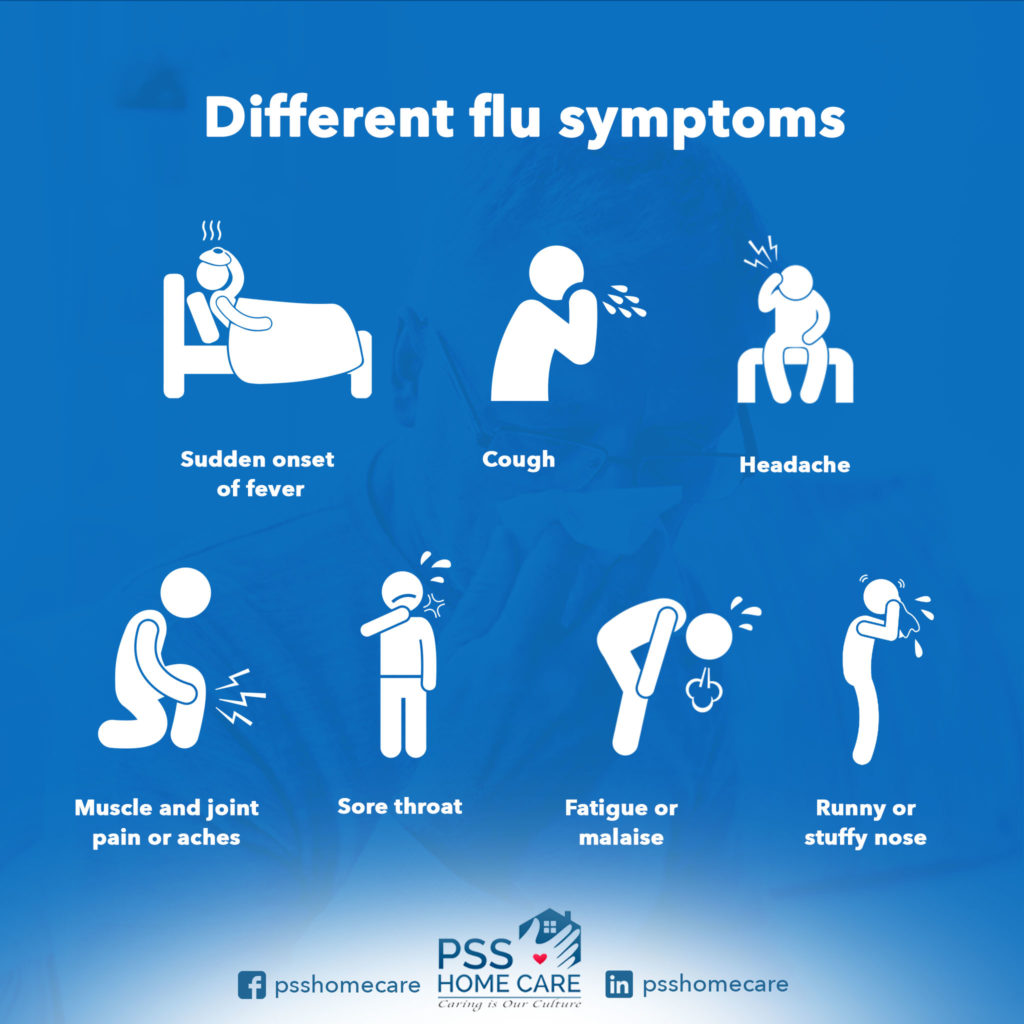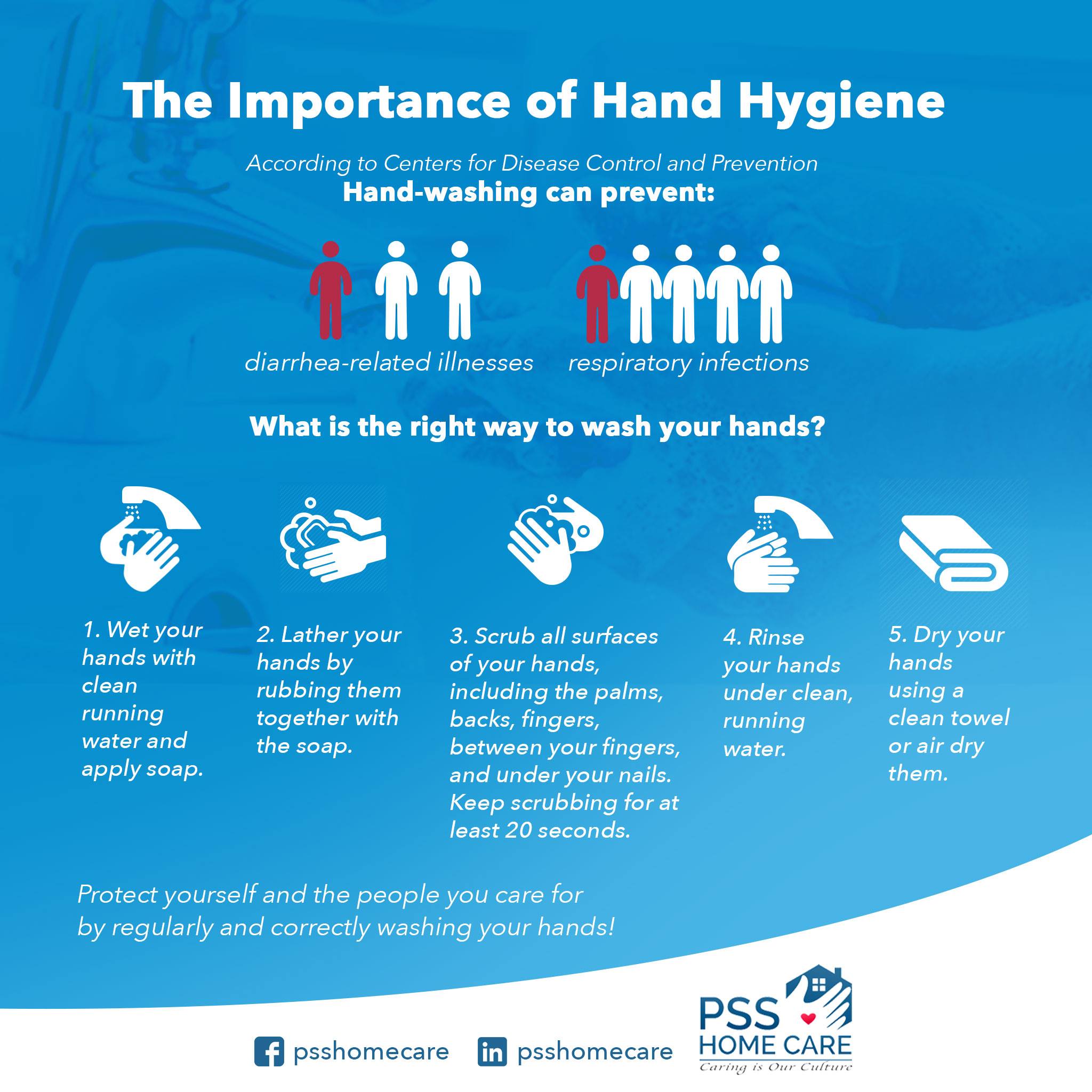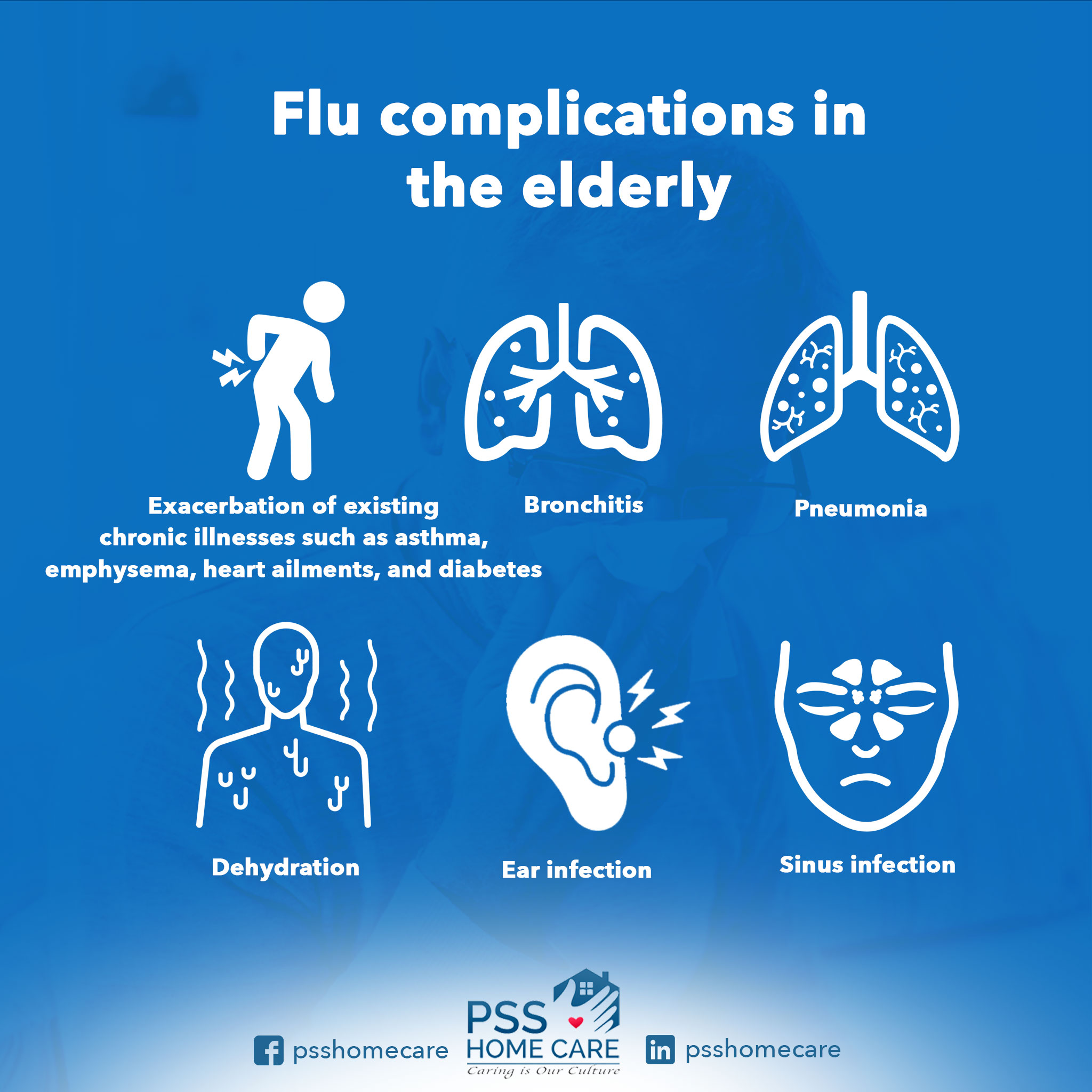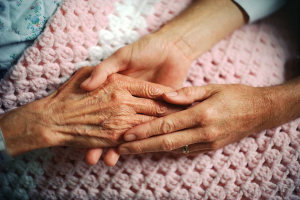Benefits of Hiring a Caregiver through an Agency The Decision...
Read MoreFlu in the elderly 101: What it looks like, how to fight it, and answers to common questions
Flu in the elderly is quite common — and unfortunately, they are more at risk of acquiring this illness and developing serious complications that could even lead to death. Every year, an average of 5 to 20 percent of the United States population gets sick from influenza or the flu — and at a population of over 327 million as of 2018, this percentage is quite significant.
But what is it? What are the different flu symptoms? What can you do to fight it?
This flu season, we put together a comprehensive flu 101 to help ensure that you and your elderly loved ones are protected against this respiratory virus.
What is the flu?
Flu is short for influenza, an infectious respiratory illness. Influenza is caused by influenza viruses A, B, C, and D.
- Influenza viruses A and B – Cause seasonal flu epidemics in the United States. This usually happens during wintertime.
- Influenza virus C – Causes a more mellow form of respiratory illness that is not known to cause a pandemic.
- D – Infects pigs and cattle. There are no known human infections from this virus.
What are flu symptoms?
There are different flu symptoms that you should be on the lookout for:
- Sudden onset of fever
- Cough
- Headache
- Muscle and joint pain or aches
- Sore throat
- Fatigue or malaise
- Runny or stuffy nose

“We should remember that not all those who will be infected with the flu virus will run a fever. If you or a loved one is experiencing any of the other flu symptoms, it’s a good idea to get seen by a doctor. Flu can have complications when untreated, especially for the immunocompromised,” shares Luisa Remponi, PSS Home Care’s Director of Patient Services.
Flu joint pain explained
Many wonder why the flu comes with joint and muscle pain that makes it hard for those afflicted with the illness to move around. The flu almost always comes with fatigue, body pain, and weakness, and this is because the body’s immune system works to fight off the infection. In doing so, it releases white blood cells into the body to attack the virus. When you feel body aches and pain when you have the flu, it’s a sign that your body is fighting off the infection.
While your body is working hard to fight off the infection from the inside, get enough rest, stay hydrated, and take a warm shower.
What is the difference between the common cold and the flu?
Though both are respiratory illnesses and share some common symptoms, like a runny or stuffy nose, colds are usually milder and do not lead to more serious illnesses, like pneumonia.
How does the flu virus spread?
The flu is transmitted quickly and widely, especially during the flu season. The flu can spread via flu droplets made when people infected with the illness cough, sneeze, or speak. The droplets can travel up to about six feet. If you have the flu, you can prevent it from spreading by wearing a medical mask to cover your nose and mouth to keep flu droplets from dispersing in the air.
A person can also get the flu by being in contact with surfaces or objects that have been exposed to the flu virus and touching their mouths, eyes, or noses. So it’s important to always wash your hands when you have the flu to keep it from going around.

Why are the elderly at risk of getting the flu?
As you age, the immune system becomes more fragile. This means that you are more likely able to develop illnesses and infections quickly and have a more difficult time recovering from them. According to the CDC, older adults 65 and older are at a greater risk of developing complications from influenza.
Flu complications in the elderly
- Exacerbation of existing chronic illnesses such as asthma, emphysema, heart ailments, and diabetes
- Bronchitis
- Pneumonia
- Dehydration
- Ear infection
- Sinus infection

Because older adults have weakened immune systems, getting the flu can be more serious for them than younger individuals. On top of developing or worsening pre-existing respiratory-related illnesses, flu-related complications can lead to an increased risk of heart attack and stroke that lasts for several months after the patient has recovered from the flu.
Not only that, but it’s also possible for the flu to trigger other serious illnesses stemming from inflammation, including myocarditis, brain encephalitis, myositis, and even multiorgan failure. The flu and flu-related complications can be deadly for immunocompromised individuals and those with chronic conditions. It has been associated with a staggering 360,000 hospitalizations and 21,000 deaths during the 2022 to 2023 influenza season alone.
“Those who are caring for older adults must always be alert. It’s important to always be on guard — check if the person is having difficulty breathing, chest pain, a persistent fever, and worsening symptoms over time. Make sure that the patient’s primary care physician is aware of any and all changes,” advises Luisa Remponi.
How do you treat the flu in the elderly?
Older adults who exhibit flu symptoms must be seen by their physicians to suggest treatment options and check for possible complications. Typically, doctors will prescribe antivirals, such as oseltamivir and peramivir, that can help alleviate flu symptoms as well as prevent flu-related complications. They can also prescribe over-the-counter medicines, such as acetaminophen and ibuprofen, to counter fever and body aches.
Flu patients will also advised to get plenty of rest and hydration and to seek immediate medical assistance if they experience shortness of breath, feel pressure or pain in the chest or abdominal area, and feel dizzy, weak, or confused.
How can the elderly avoid getting the flu?
The CDC recommends getting the Fluzone High-Dose vaccine for older adults aged 65 years and above. This vaccine can help prevent the flu caused by influenza viruses A and B. You can ask your doctor when the best time in a year is to get a flu vaccine to help build up your immunity against it.However, if you’ve had an allergic reaction with previous flu shots or is allergic to eggs, tell your doctor and ask if the flu shot is for you.
If you already have the flu virus, ask your doctor what antiviral medication you can take to help you recover as quickly as possible.
“It’s crucial that elderly adults who have the flu to have plenty of rest. Drinking lots of water, herbal teas, juices, and clear broths or soups can help with decongestion,” remarks Luisa.
“But the key is to ensure that your immune system is healthy enough to keep you from acquiring, to begin with. A healthy immune system can be achieved by making healthy eating choices, exercising, and drinking vitamins,” she adds.
Why is the flu vaccine so important?
Aside from the fact that the flu vaccine can help protect you from getting sick and developing flu-related complications, it also protects those around you from acquiring this contagious respiratory illness.
Herd immunity or herd protection occurs when a high percentage of people in the community are flu-vaccinated, ensuring that a contagious disease, such as the flu, cannot be easily transferred to others — especially the most susceptible.
“When a lot of people within the community are vaccinated, they help prevent the transmission of the flu to the community. Herd immunity is incredibly important especially for those who can’t get vaccinated or the immunocompromised, such as babies, those who are pregnant, and the elderly,” states Luisa.
“At PSS, we make sure that all of our employees are immunized against the flu each year. We are proud of our high compliance rates especially from our care team members who have direct contact with our clients,” she highlighted.
It’s vital that your loved ones, as well as those who care for them, are protected from seasonal influenza.
Check out our other articles
Tips On How to Save Money During the Pandemic
Tips On How to Save Money During the Pandemic To...
Read MoreLiving and Caring: Improving Patient and Caregiver Quality of Life with Respite Care
Living and Caring: Improving Patient and Caregiver Quality of Life...
Read MoreHow To Cope With The Death of a Loved One
How to cope with the death of a loved one...
Read More



